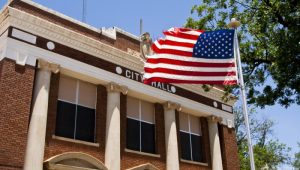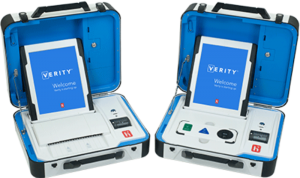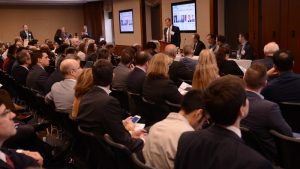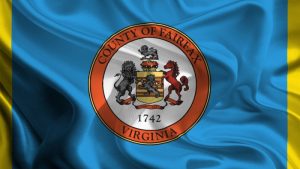Money is the single biggest barrier to local governments achieving the highest levels of cybersecurity. From not being able to pay competitive salaries to an insufficient number of cybersecurity staff, local governments are unable to deliver cybersecurity protection because their budgets don’t match their tasks.
By Aug. 31, all of the 8,000 taxicabs in the District of Columbia will have digital meters instead of hard-wired analog meters.
NASPO ValuePoint selected CGI to provide cloud-based enterprise resource planning tech to states through NASPO ValuePoint’s procurement initiative.
Constituents of Oakland County, Mich., will use new electronic voting machines when they cast their ballots in the municipal primaries in August.
Fairfax County, Va., libraries are launching the Thermal Camera Loan Program. Thermal cameras take heat map pictures representing different temperatures within a home. FCPL is making eight such cameras available to library card holders.
While many counties and cities are adopting mobile apps to connect with residents, websites still remain the most popular form of digital communication. For the third consecutive year, nine out of 10 local government respondents in a recent survey describe their websites as “integral to their overall communications and public service strategy.” Vision, a government-focused […]
Ten counties in Texas have purchased new voting systems since mid-December, showing preference for centralized applications and user-friendly software that make poll workers’ jobs easier.
Collaboration and a willingness to learn new practices are the best ways to address cybersecurity concerns surrounding cloud computing, according to IT leaders from across the country. Greg Urban, chief operations officer of Maryland, said that a strong core of talent makes a big difference when exploring cloud capabilities.
As the chief information security officer of Fairfax County, Va., and the chairman of the National Capital Region’s CISO committee, Michael Dent has been at the center of his county’s information security practices. Dent sat down with 21st Century State & Local to discuss his experiences in the field and recommendations for other local CISOs.
CenturyLink has been awarded a NASPO Value Point Cloud Solutions Master Agreement, a contract that will enable the company to sell its cloud solutions to state and local governments as well as authorized political subdivisions, such as school districts, counties, and cities.













